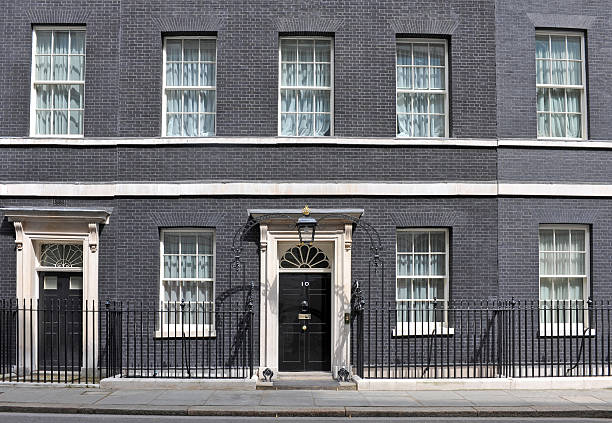In a previously released and recently updated policy paper, UK Prime Minister Keir Starmer warns of Russia’s Shadow Fleet. “Russia’s ‘shadow fleet’ poses a threat to our nations and others who depend on the world’s seas and oceans. We are coming together today determined to address the risks that the ‘shadow fleet’ poses to the environment, maritime safety and security in Europe and beyond, the integrity of international seaborne trade, and respect for international maritime law.” The UK PM states.
London (Special to ZennieReport.com) – Russia’s ‘shadow fleet’ poses a threat to our nations and others who depend on the world’s seas and oceans. Many ships in this ‘shadow fleet’ are uninsured and poorly maintained. Many engage in activities which violate basic safety and environmental standards and regulations.
We are coming together today determined to address the risks that the ‘shadow fleet’ poses to the environment, maritime safety and security in Europe and beyond, the integrity of international seaborne trade, and respect for international maritime law.
The ‘shadow fleet’ comprises ships engaged in illegal operations for the purposes of circumventing sanctions, evading compliance with safety or environmental regulations, avoiding insurance costs or engaging in other illegal activities.
The European Parliament reports that:
Following Russia’s unprovoked invasion of Ukraine, the European Union (EU), G7, and allied partners
imposed extensive sanctions targeting Russia’s economy, in particular the oil sector, in an effort to
curb the Kremlin’s revenues which finance its war effort. Key measures include an embargo on
Russian seaborne oil imports and a price cap on oil and oil products that restricts profits while still
allowing sales below a certain price. Enforcement mechanisms prevent Russia from chartering or
insuring oil tankers unless they comply with these limits. In response, Russia has sought new markets
and established a ‘shadow fleet’ to evade these restrictions.
The terms ‘shadow fleet’, ‘dark fleet’ and ‘grey fleet’ have gained prominence following the imposition
of sanctions on Russian energy exports, yet their definitions remain inconsistent among experts,
leading to confusion. Analysts increasingly recognise that the broader definition, encompassing all
vessels lacking Western insurance and belonging to non-EU/G7+ companies, captures the diverse
tactics employed by Russia to circumvent sanctions and highlights the potential risks associated
with these operations.
To evade sanctions, the Russian ‘shadow fleet’ makes use of flags of convenience and intricate
ownership and management structures while employing a variety of tactics to conceal the origins of
its cargo, including: ship-to-ship transfers; automatic identification system blackouts; falsified
positions; transmission of false data; and other deceptive or even illegal techniques. In addition to
bolstering its war chest, Russia’s ‘shadow fleet’, which consists of a growing number of aging and
poorly maintained vessels that operate with minimal regard to the regulations, poses significant
environmental, maritime safety, and security risks.
We strongly endorse IMO Resolution A.1192(33), which urged IMO Member States and all relevant stakeholders to prevent illegal operations in the maritime sector by the ‘shadow fleet’.
We welcome the steps Coastal States have already taken and are taking, and in particular the firm measures adopted by the European Union. It is critical to ensure full compliance of all safety, liability, and environmental rules across the maritime economy.
We call on flag States to ensure that ships flying their flag adhere to highest possible safety and pollution prevention requirements and best practices, including those contained within relevant IMO conventions and resolutions.
We call on port States to ensure the enforcement of the safety and liability conventions on these ships, including those that relate to ship-to-ship transfer operations and the requirement to have on board valid State certificates of insurance.
We urge ship owners and operators, the marine insurance industry, ship brokers and other relevant maritime stakeholders to adhere to their relevant obligations, and support the prevention, detection and reporting of ‘shadow fleet’ activities.
We encourage IMO Member States to keep under close review the risks posed by the ‘shadow fleet’ and take further collective action at the IMO to address those risks.
We have agreed to share information on the practices and operations of the ‘shadow fleet’, to coordinate our responses to the risks posed by its ships and facilitators, and to work with the private sector and other maritime stakeholders to address the threat. We have asked our relevant officials and experts to meet together, as a group and in regional formats, in order to take forward concrete measures to those ends with the greatest urgency.
This ‘Call to Action’ has been endorsed by:
- Albania
- Andorra
- Austria
- Belgium
- Bosnia and Herzegovina
- Bulgaria
- Croatia
- Cyprus
- Czechia
- Denmark
- Estonia
- Finland
- France
- Georgia
- Germany
- Greece
- Hungary
- Iceland
- Ireland
- Italy
- Kosovo
- Latvia
- Liechtenstein
- Lithuania
- Luxembourg
- Malta
- Moldova
- Monaco
- Montenegro
- Netherlands
- North Macedonia
- Norway
- Poland
- Portugal
- Romania
- San Marino
- Serbia
- Slovakia
- Slovenia
- Spain
- Sweden
- Switzerland
- Ukraine
- United Kingdom
- The European Union
This ‘Call to Action’ has subsequently been endorsed by:
The United States
Australia
Canada
Japan
New Zealand
